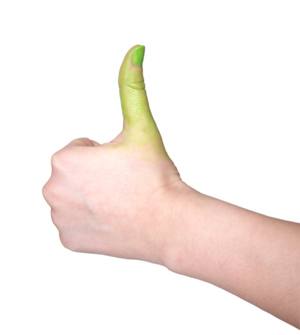 Even for beginners, organic gardening is simple, fun, and good exercise—plus you can eat the fruits (and vegetables) of your labors. When you garden naturally, you have the satisfaction of knowing you’ve used only organic fertilizer and natural pest control. You’ll have fresh, homegrown food without the worry of added chemicals and preservatives.
Even for beginners, organic gardening is simple, fun, and good exercise—plus you can eat the fruits (and vegetables) of your labors. When you garden naturally, you have the satisfaction of knowing you’ve used only organic fertilizer and natural pest control. You’ll have fresh, homegrown food without the worry of added chemicals and preservatives.
What do you want to grow?
If this is your first organic garden, you’ll wonder what you should grow. Choose something you’ll enjoy eating, because if you use composted manure or organic fertilizer, you may end up with quite a bit of food. Lettuce, strawberries, onions, and peppers are some of the easiest plants to grow and don’t take up a lot of room in your organic garden. In fact, you can plant them in pots and place them anywhere you have room.
Prep the soil.
As long as you have enough sunlight, it doesn’t matter where you grow your garden; the most important thing is to prepare the soil correctly before you plant. Over the years, the soil in most places has been depleted of nutrients, so you may need to add garden compost to your soil for best results. We always suggest you contact your local agriculture extension office for a soil test kit so you know exactly what you need to add to your soil.
MOO DOO® is a nearly odor free, composted cow manure that adds the right combination of nitrogen, microbes, and organic matter to help you grow a garden of nutritious food.
Don’t forget organic seeds.
After you’ve worked organic fertilizer into your soil, it’s time to plant. To have a true organic garden, you’ll want to use organic seeds. Be sure you know which zone you live in so you can choose plants that will thrive. Knowing your zone will also tell you the approximate best time for planting and how long your growing season is.
Be sure to follow the directions that come with the organic plants or seeds—and don’t plant them too close together. If you plant a large garden or have plants in several places, you can buy or make garden markers to help you keep track. Plant seeds at the correct depth, and ensure they receive enough water and sun.
Know your weeds.
One of the less-fun aspects of gardening is weeding. Since you may not know which plants are weeds, try pulling up photos of weeds on your laptop, and then take it outside for easy comparison. If you’re unsure, it won’t hurt to let the weed grow for a week or two to better identify it—or ask a friend who gardens to help. Occasionally, a rogue plant turns out to be a pleasant surprise!
Nothing beats organic gardening when it comes to having fresh food you can enjoy all summer long. Not only will you reap a bountiful harvest, but you’ll also stay fit and become one with nature. Your first garden will be a rewarding learning experience, and hopefully you’ll find a fulfilling new hobby. An organic compost such as MOO DOO® will help you grow bigger and better-tasting fruits and vegetables.
What do you wish you’d known when you started organic gardening?




